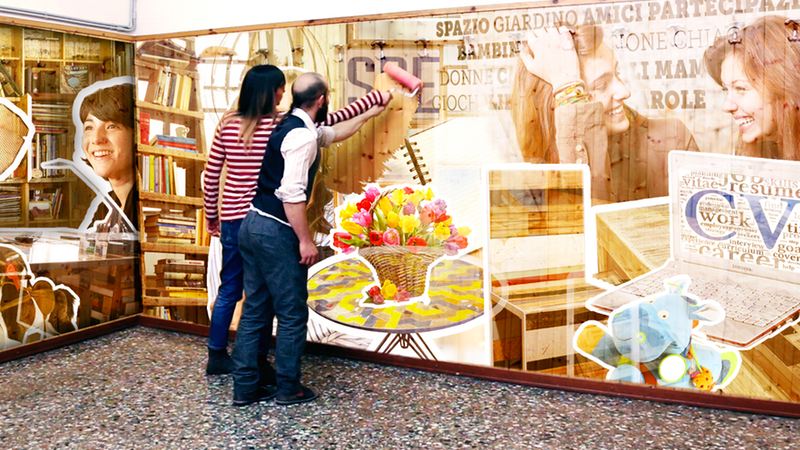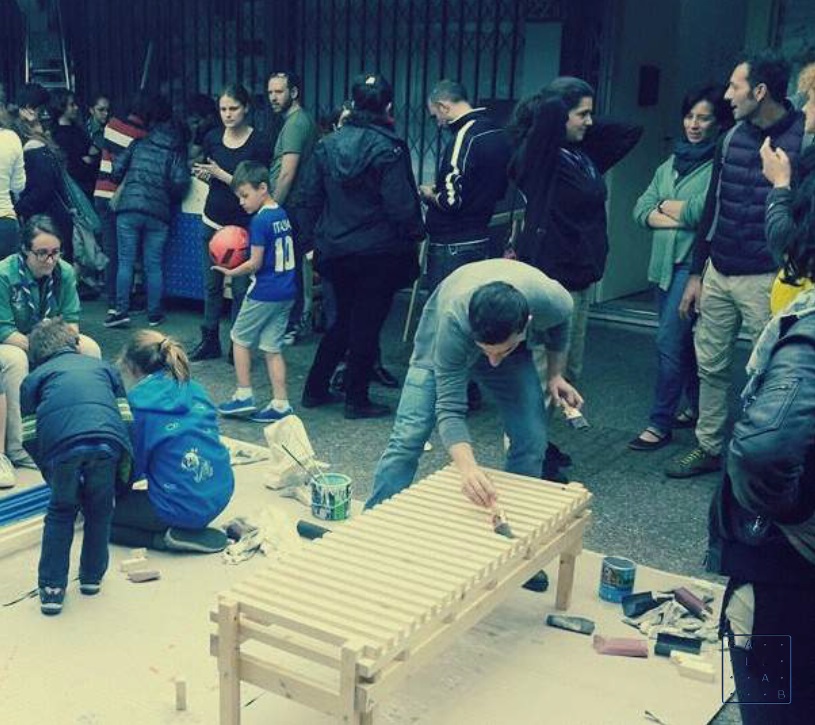
A More Inclusive, Wellbeing City Through New Projects with a High Social Impact
mai 21, 2019 — Programmes
The City of Milan is proud to be the 2019 Wellbeing City. Milan is aware of the problems and opportunities in terms of sustainability, resilience, quality of life — and it views bottom-up initiatives are a chance to re-use public and private spaces, providing useful services for the community.
Through the Civic Crowdfunding project, we experimented an innovative way to implement sixteen new projects with a high social impact for the community, enhancing local identities and harnessing synergies between public and private stakeholders.
Milan has become a lab that promotes Wellbeing, as envisaged by the Smart City guidelines approved by the City Council in 2014. We are committed to developing policies that allow the local authority to improve citizens’ quality of life.
Initially, we launched a public procurement tender to select a crowdfunding platform. Innovative projects were gathered through a public call open to both non-profit organizations and SMEs. The assessment committee selected 18 projects to enter the crowdfunding platform, in order to gather the donations by the community. Projects which collected at least 50% of their budget from donations received a co-funding of an equal amount of the remaining budget part from the City of Milan (with a maximum contribution of the City of EUR 50,000).
As a final result, 16 projects reached the goal of collecting more than half of their budget from single donors; the total amount raised from private citizens during the campaigns was equal to € 333,136 and the overall investment in the territory was equal to € 656549 through the City’s contribution.
The experience proved to be an opportunity to experiment an innovative way to finance projects of public interest, by encouraging the pooling of public and private resources to support high-impact social projects. Moreover, it promoted citizens’ involvement in the decision-making process of the Public Administration, as far as budget allocation is concerned.
The projects are helping test which re-design urban spaces to maximize enjoyment and multifunctionality for residents, city users and tourists alike. Further, they meet the needs of an aging population as well as those of the younger people, and weaker segments of our society. These bottom-up initiatives are now boosting social cohesion, urban wellbeing and inclusiveness in different areas: care services, regeneration of dismissed areas, art and education, just to name a few.
Milan as Wellbeing City would not exist without active citizens who are aware and involved in the city’s public life. The experience of civic crowdfunding paved the way to foster a dialogue on new scenarios of change, enhancing key spaces and experiences that are pivotal to the city.
Being a Wellbeing City is a complex process. It involves deep-rooted innovation with regard to tangible and intangible infrastructures and citizens’ lifestyle; it requires a rethinking of policies and actions in order to forge a community able to live and compete in a globalized world, without neglecting that we shall also remain a “glocal” city.
The initiatives promoted by the community of stakeholders represent a resourceful laboratory for many different fields such as health, sustainability, creativity and research. Their projects provide commodities to the citizens and create synergies among the city government, private sector institutions and other stakeholders.

Milan now distinguishes itself for an active citizenship, broader creativity, the willingness to cooperate, growing local “bottom-up” networks, cultural diversity and manifold ideas of self-identity. All this enables Milan to reach proactively to today’s rapid changes of the times we live in.
For the future, I envision Milan as a city of opportunities, both attractive and inclusive, a greener city, both livable and lively, endowed with useful spaces and services.
Today’s global challenges, if properly managed, can lead to major development in terms of innovation and bring about wellbeing and widespread economic growth. The metropolitan area of Milan represents a natural incubator for ideas which may transform problems into opportunities, and find new solutions to old ones.